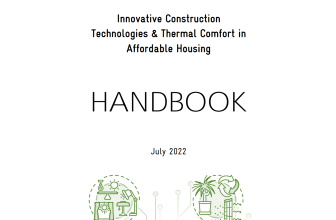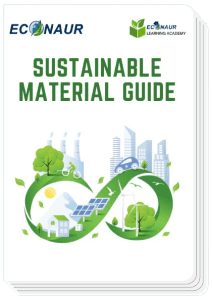Rajasthan Government Launches Solar, Wind & Hybrid Energy Policy!
Rajasthan Government has released its Solar Energy Policy, 2019, which aims to achieve a target of 30 GW of solar power by financial year (FY) 2024-25. Of this, utility or grid-scale solar parks will account for 24 GW, distributed generation is expected to account for 4 GW, the solar rooftop will total 1 GW, and solar pumps will make up the remaining 1 GW.
The state has also unveiled its Wind and Hybrid Energy Policy, 2019, which aims to achieve 2 GW of wind power capacity to fulfill the renewable purchase obligation (RPO) by FY 2024-25 and 3.5 GW of hybrid power projects by FY 2024-25.

Solar Policy
The Rajasthan government is planning to develop 33 district headquarters as ‘Green Energy Cities’ in the next five years by installing 300 MW of solar rooftop systems.
Net metering will be allowed for rooftop solar systems of up to 50% of the capacity of the distribution transformer of the area.
According to the new policy, solar rooftop systems can also be set up under the gross metering regulations as per the guidelines prescribed by the state or central government. Solar rooftop systems up to 1 MW capacity will be allowed under this.
The state will promote setting up of decentralized solar power projects with a minimum capacity of 0.5 MW and a maximum capacity of 3 MW in the premises and vicinity of 33 kV grid sub-stations for the sale of power to DISCOMs.
The Rajasthan Government will also promote stand-alone solar systems to provide electricity to households in remote villages and solar PV pumps for pressure irrigation systems.
The policy also talks about encouraging solar projects for captive use under various scenarios and the exemption of transmission and wheeling charges and electricity duty.
Rajasthan Solar Park Development Company Ltd., a special purpose vehicle of the RERC, has been established for the development of infrastructure and management of solar parks. The RERC will develop solar parks in Rajasthan on its own or through any other SPV, which may be created as required.
The state is also keen to support solar projects with storage systems like battery storage, pumped hydro storage or any other grid-interactive storage system. The DISCOMs plans to procure up to 5% of their RPO target from renewable energy projects with storage systems at a tariff discovered through competitive bidding in addition to the RPO target.
The state will give extra attention to the development of solar parks by the private sector. The solar power park developer will be allowed to acquire agricultural land from the titleholder for developing solar parks above the ceiling limit per the provisions of Rajasthan imposition of ceiling on Agriculture Holding Act, 1973.
The state is also planning to support electric vehicle charging in the state. The charging infrastructure will be developed as per the guidelines and standards issued by the Ministry of Power (MoP) and the Central Electricity Authority. The EV charging stations may be established by the state or central public sector undertakings, private operators, or under the public-private partnership (PPP) models.
The state will also promote solar power projects on private land. Developers will be permitted to set up solar power projects on private agriculture land without the requirement of land conversion per the provisions of the Rajasthan Tenancy Act 1955 and the Rajasthan Land Revenue Act 1956.
The government aims to encourage manufacturing facilities for solar equipment in Rajasthan, leading to the development of the solar energy ecosystem and employment generation.
It is interesting to note the setting up of the Rajasthan Renewable Energy Development Fund. In the future, solar projects set up in Rajasthan for the sale of power to entities other than state DISCOMs are mandated to contribute to this fund. Projects commissioned by March 31, 2024, have to contribute ₹200,000 ($2,814)/MW per year. The contribution amount increases by ₹100,000 ($1,407)/MW per year after that.
Wind Policy
The state aims to achieve 2 GW of wind power capacity to fulfill renewable purchase obligation (RPO) of state DISCOMs as determined by the RERC up to 2024-25. In addition to this, the state is also planning to install 2 GW of wind power projects for captive consumption.
The state will aid wind power projects in the state for the sale of power to the Rajasthan DISCOMs through competitive bidding to achieve its RPO target.
The state will also facilitate wind power projects for captive use or third-party sale for consumers within the state. The maximum permissible capacity for captive use will be limited to the contract demand of the consumer.
The state will also allow setting up wind power projects of any capacity for captive or third-party sale outside the state or through power exchange.
The state will encourage the repowering of existing wind turbines that have completed ten years in operation. In case of power being procured by state DISCOMs through existing PPA, the power generated corresponding to average of last three year’s generation before repowering would continue to be procured on the terms of PPA and the remaining additional generation may be purchased by DISCOMs at a tariff discovered through competitive bidding in the state at the time of commissioning of the repowering project.
The government land will be allotted to the wind power projects as per the provisions of Rajasthan Land Revenue Rules, 2007. For setting up of wind power projects, the maximum area which may be allotted to the developer will be 3 Hectare/MW.
Hybrid Policy
The policy aims at a target of 3.5 GW of projects by the financial year 2024-25, out of which hybridization of existing wind or solar projects will account for 200 MW, new wind-solar hybrid projects will account for 2 GW, wind-solar hybrid with storage systems will account for 500 MW, and hybridization of existing conventional projects will account for 800 MW.
The state will promote setting up of wind-solar hybrid power projects for optimal and efficient utilization of infrastructure and land and achieve better grid stability. The maximum permissible capacity of an individual project for captive use within the state will be limited to the contract demand of the consumer.
The state will encourage wind-solar hybrid power projects with storage systems to reduce the variability of output of renewable power into the grid and to ensure the availability of firm power for a particular period.
The state will also provide support to the hybridization of existing conventional thermal power projects by allowing the setting up of renewable power projects by the conventional power generators for using its thermal power or renewable power to meet its scheduled generation from the specific thermal generating station.
For setting up of wind-solar hybrid projects based on different technologies, the maximum land area which can be allotted is as under:
-
- 3 hectare/MW for SPV on crystalline technology
-
- 5 hectare/MW for crystalline technology with tracker
-
- 5 hectare/MW for SPV on thin-film/amorphous technology with or without a tracker
For the wind-solar hybrid power projects with a storage system, additional land will be allotted as per the rules prescribed by the state’s revenue department.
According to Mercom India Solar Project Tracker, Rajasthan accounts for 4.4 GW of large-scale solar projects in-operation, while nearly 1.9 GW of projects are under development pipeline as of November 2019. According to the MNRE, Rajasthan has 4.3 GW of wind power capacity as of Oct 2019.
Recently, the government of Andhra Pradesh issued a notification amending the state’s policy for wind, solar, and wind-solar hybrid projects, taking away some vital incentives from the renewable generators. The amendments have changed or canceled many existing provisions in these policies that deal with transmission charges, energy banking, and tariff determination.








